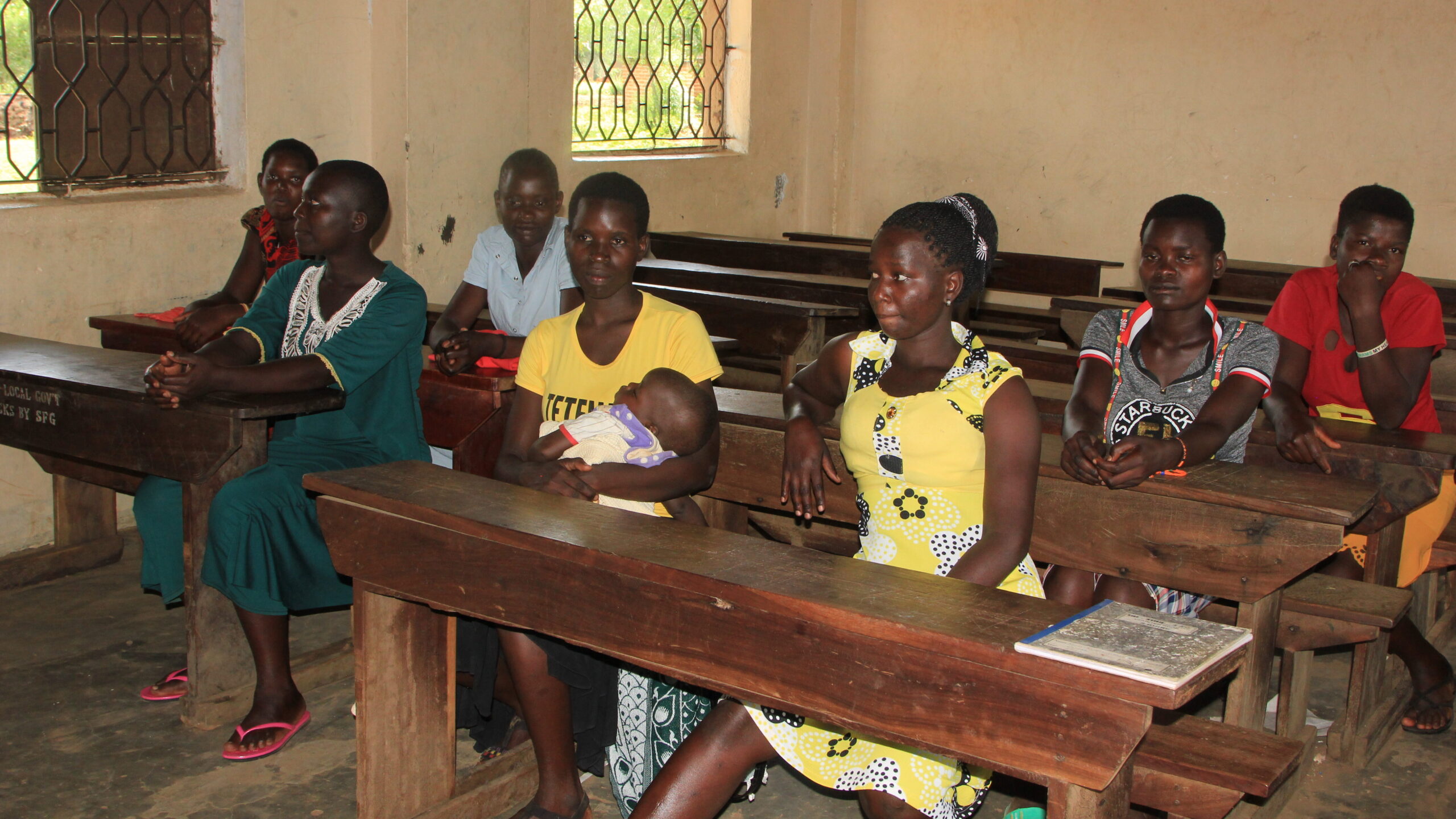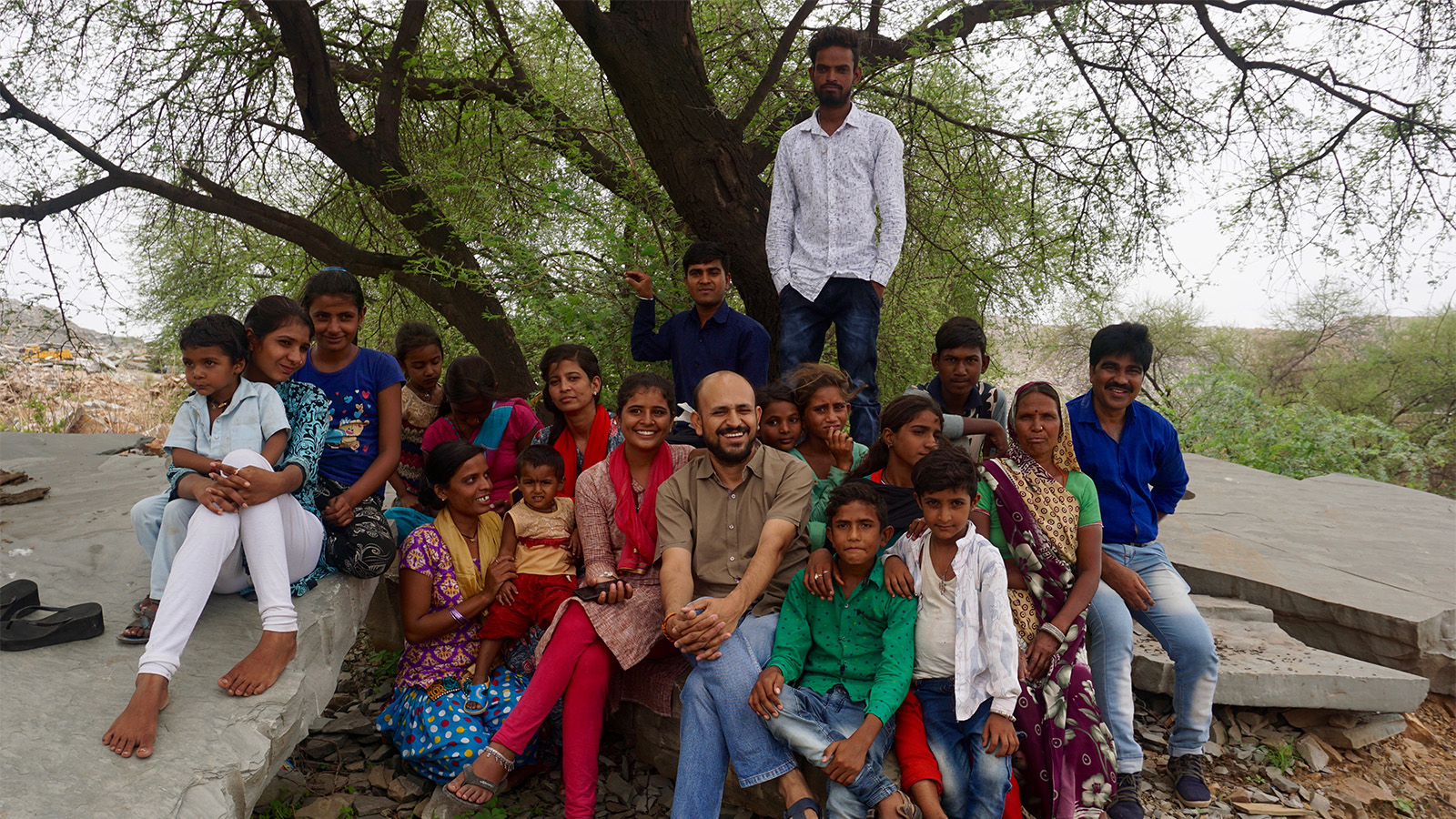Challenges
Mobilisers meet difficult challenges in their work. The root causes of child labour are often persistent in the communities. Social norms and traditions, poverty, social exclusion and discrimination, as well as a poor functioning education systems, are key reasons why children are working and not going to school. The lack of decent work for adults, weak laws and/or law enforcement by government, and failing labour inspections also contribute. Mobilisers encounter these causes in their work which makes their work a difficult process, sometimes also facing resistance and opposition.
Dalit discrimination
The difference between children and families from different castes is very big and a dominant issue. For example, Dalit children are often denied access to school, stereotyped and discriminated against in many ways. Parents from higher castes don’t want their children to go to school with Dalit children. Dalit children are mistreated by people from other castes, including parents, teachers and principals. In addition, Dalit people have no examples of others in their families going to school. Imagine coming from a family where no one, no child, parent, aunt and uncle or grandparent, has ever been to school. This is very common within Dalit families. Because they have no example from their own families of what it means to be educated, it is even more challenging for mobilisers to convince them that their children should go to school. These families have so little that, in their current situation, they have to let their children work to survive.
“It was not easy to get Dalit children to go to school. I, among others, had to negotiate with the teachers to make this a reality. Prior to my intervention, the teachers did not allow these children in their classrooms. They told me: “If you allow Dalit children in school, hundreds of other children will not go to school.” They said that the good name of the school would be tarnished if they allowed Dalit children into their classrooms. Even though every child has a right to education by law, it was not easy to convince the teachers and principals to allow all children into their school. After a lot of negotiation and perseverance, many Dalit children are attending school in this district. This is a great achievement.”
Living conditions
In many states and areas of India where child labour is an issue, including communities in Bihar, adults and parents struggle to meet their basic needs. Livelihood opportunities are limited and there is a lack of decent work for adults. The work that is available to them is often very poorly paid. In some cases, their work is seasonal, meaning that when the rainy season arrives, for example, they have no work and no income. This forces children to work and help earn money. Living conditions such as poverty and lack of good livelihood opportunities are contributing factors to child labour.
‘’Bihar is known for its frequent floods. Four to five months a year, the land is under water. The land is very difficult to cultivate during the rainy season and therefore not profitable. This is one of the reasons why people migrate and why children are sent off to work elsewhere.’’
”The main work children do in the area where I live is laying bricks. They also work in small shops and restaurants, rolling beedi and farming. As a mobiliser in my area, I focus on mobilising parents and helping them with new and better livelihood opportunities, such as more suitable forms of agriculture and farming practices for the region.”
When parents and adults have better livelihood opportunities that are specific to their area, land and community, they can earn an income that can support their family. Mobilisers do research on appropriate and sustainable decent work options and introduce these to parents and adults in their community.
Mobilisers address the economic strengthening of the families (e.g. through village saving and loans associations and income generating activities) so that parents are supported and their children can go to school. Once they feel heard, supported and helped, they can begin to understand the value of education for their children.
“’When someone is struggling to make their basic needs, when they have no money and very little food, it is difficult for us to make them understand the value of education. When we see that a child is not going to school but is working, we will do an intervention. But when we start an intervention in an area, it takes a long time to make people understand the importance of our work and why we are doing it. In the past, NGOs may have come and gone, made false promises, and damaged their trust. We need to convince them and show them that we actually do what we promise them to do.”
”The people in the area where I work are uneducated and there is a lot of poverty. So, when I try to tell people not to marry off their children, not to let their children migrate to a big city or work in child labour, the families and people ask me, what will you give us in return if our children stop working?”
Difference between boys and girls
The unwritten rules and social norms discriminate against girls’ education compared to boys’. They are at a disadvantage in terms of their ability to go to school, in terms of being allowed to go to school, and in terms of their actual success in school. Girls are often not allowed by their families to leave home for higher education. As a result, in some communities, especially among the lower castes and in Muslim communities, girls are less likely to be educated and more likely to be involved in child labour. Community mobilisers must challenge the deep-rooted norm that girls ‘don’t need education’.
“There are many differences between boys and girls in terms of school attendance and school enrolment too. Girls and boys have very different roles in the household. This affects their chances of going to school and succeeding in school. For example, girls have to help with housework alongside their schoolwork. Parents are very strict with them. If they don’t do their chores, the parents often won’t allow them to go to school. Boys don’t have to do housework and there’s often no pressure on them to do homework either. Girls have less time than boys to complete their school homework.”
“The general attitude of parents is that when girls get older, they will be responsible for the household. So why should they do schoolwork? And why should parents invest in their education? Especially since the girl will leave home after marriage to live with her husband’s family. Girl child marriage is another great challenge in the areas where we work. The girls marry at young age and drop out of school.”


Strong norm in communities
The fact that children are involved in child labour is also a result of a tradition and mindset that is very strong and deeply rooted in the communities. Children from poor families and communities hear from an early age that they have no value in society. When a child hears and experiences this message over and over again, they begin to believe it themselves. As a result, they lack a sense of self-worth. Society believes that it is not important for poor people to go to school. The children’s parents have been brought up with the same messages, have not been educated themselves and lack the confidence and knowledge to send their children to school. The strong social norms in society hinder equality and progress for children.
”A lot of children work in home-based work, but some of them also work in factories in this area. It is difficult for us to be involved with the children working in factories. We can’t just enter a factory and try to find children there or accuse factory owners of having children working in their factory. That would work counter-productive, and we need them to help us tackle the issue of child labour. So, we mainly focus on parents. When we talk to them about child labour, it makes more impact, because it is about their child. We talk to parents about the harmful impacts of child labour on the child”.
“The fact that children are involved in child labour is also a result of tradition and mindset. For example, if my father works in agriculture, I will work in agriculture. If I work as a bricklayer, my child will be a bricklayer. This mindset is very strong and deeply rooted in our communities. As a mobiliser, I try to change their mindset. So I tell people that their children should not do the same work. I try to make them understand that their children should go to school so that they can get a better, more respectful job. So I tell the parents that if their child goes to school, they will learn to read and understand the value of money. This example helps parents understand the importance of education for their children.”
Time
“Constantly adjusting our schedule to their schedule is very challenging and a big sacrifice, but essential if we want to talk to them.”
A challenge that mobilisers face when talking to people in the community is time. To meet and talk, the mobilisers visit parents and others in the community at a time convenient to them. The schedules of the mobilisers are thus constantly changing. In order to be effective, they need to be flexible with their time and timing. If people are available at 7am, the mobilisers go and visit them at 7am. When people are busy, mobilisers are wary of taking up too much of their time as this could be counterproductive. Identifying and planning when there is time and when it is best to talk to families, children and others in the community is a challenge.
“In the rainy season, people are in the patties to plant seeds and in October, it is harvesting time. Because all the people in the villages work, it is difficult to get everyone together on one moment. Therefore, we go into the field to discuss the issues we want to discuss. It can be very challenging to meet up with people, but we try to minimise this challenge by change our schedule and timing according to their availability.”
Lack of documentation
In many of the communities where the mobilisers work, children often don’t have the documents needed to get enrolled in school. One of the requirements for school enrolment is an Adhar card (Indian identity card). But many of the children don’t have such a card. In these cases, the mobilisers help to arrange the Adhar card, including obtaining all the correct information about the child to complete the paperwork. Sometimes children do have an Adhar card, but it has incorrect information on it, such as a wrong name, wrong address or wrong date of birth. In these cases, mobilisers work to correct these official documents before the child can be enrolled in a school. An example of the challenge of completing or changing official documentation is that many of these children and their parents don’t have birth certificates. In addition to lacking official identification documents, parents also don’t have bank accounts. This complicates all official processes, including the school enrolment process.
Whether a child has no documents at all, or has documents with incorrect information, mobilisers rise to the challenge of providing the correct documentation needed to enrol in school.
“’We help families and their children with the school admission. We put a lot of effort into this as many children don’t have any official documents such as identification or a birth certificate.”

